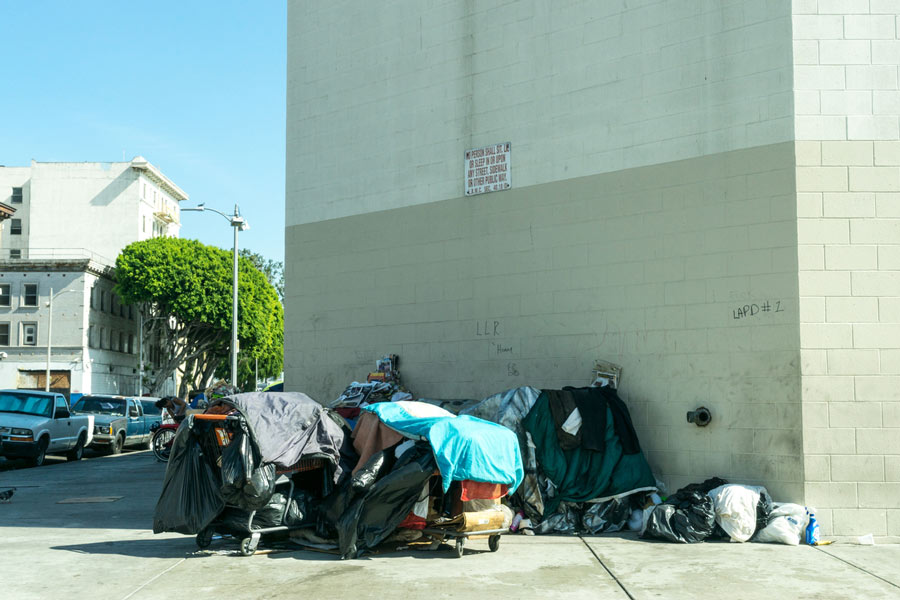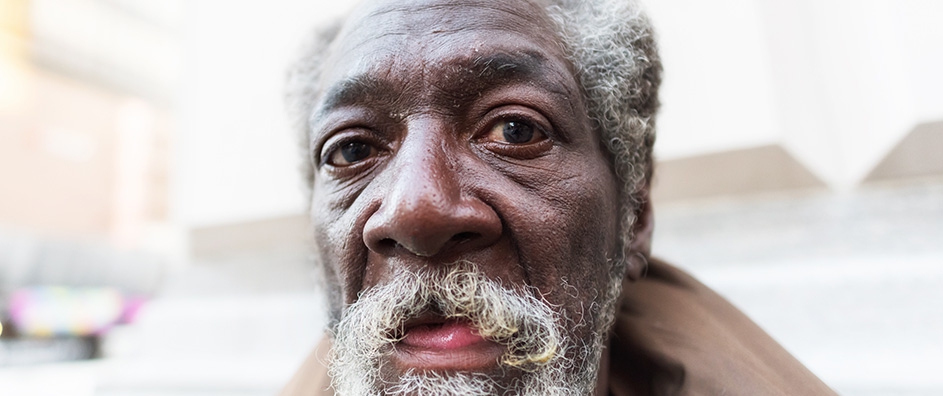The views expressed in our content reflect individual perspectives and do not represent the authoritative views of the Baha'i Faith.
At 18 years old and fresh out of high school, I worked in a large state mental hospital. That’s where I first learned about heroin.
Soon after I began my job there, I realized that several of my patients—I worked the night shift on a ward with 70 male schizophrenics—were addicts. The hospital had a 10-foot fence surrounding it, so I had no idea how they got their drugs, but I often caught one or more shooting up in the bathroom, or snorting heroin in a dark corner somewhere. At first it shocked me, but after a while I learned that mentally ill people often have what’s called a “dual diagnosis”—along with their mental illness, they found ways to self-medicate with readily-available street drugs like heroin.
My supervisor, a 30-year veteran psychiatric nurse and one of the toughest women I ever met, told me what to do when I caught a patient using. She said: “Your job is to confiscate those drugs, stop the patient from using them, and then run back to the locked nurse’s station so the patient doesn’t kill you.”
Oh. “Well, that should be easy,” I sarcastically told her. “Good luck,” she said, in a not very encouraging way.
Her advice, I later found out, was not hyperbole. Another psychiatric technician and college student like me had been killed by an angry patient the year before. The psych tech had taken away his heroin. The patient strangled him to get it back.
I naively thought: what drug, what high, would make someone murder another person?
Then, a few years later at 20 years old and as a soldier in the Vietnam war, I first encountered opium. I didn’t try any—Baha’is don’t use recreational drugs—but I felt its effects up close and personal. During my 14-month tour, I saw many, many American soldiers become addicted to the very cheap and very potent Vietnamese opium and heroin. Some researchers estimate that up to 40% of American troops used those drugs. I don’t know if that’s true, but I do remember walking around an American base in the northernmost district of South Vietnam one night, my combat boots crunching the little round plastic containers the heroin came in, no matter where I stepped.
One of my closest friends in Vietnam, a fellow Army soldier named Eddie who once saved my life in a firefight, became an opiate addict. I saw it happen, feeling helpless and frustrated, as his usage went from casual to weekly to daily, progressing from smoking a little opium mixed in with his pot, to smoking pure opium, to shooting heroin. Nothing I did or said could deter him—and believe me, I tried everything short of turning him in to the military police. I wonder, to this day, if that would’ve helped.
Eddie, if you’re still out there, I sure hope you recovered.
I looked for Eddie’s name on the Virtual Wall list of all the Vietnam war deaths and it wasn’t there, so I’m pretty sure he didn’t die in combat. But most of the casualties of that war weren’t killed by bombs or bullets. They died from other wounds.
In strange and coincidental ways, my initial exposure to opium and opioids in that mental hospital and then in the Army during the war, set me on a lifelong path of dealing with opiates and the addictions they produce. In my first professional career position, I helped run a nationwide addiction treatment network called Comprehensive Care Corporation, which owned and operated 400 hospital-based drug and alcohol addiction treatment units. There I met many addicts, published books about addiction, wrote magazine articles, spoke to large audiences about the issue and gave hundreds of media interviews. People started calling me an expert on the topic, although I never felt like one.
Then, as my professional career began to focus on reforming the entire healthcare system, I tried something new by volunteering as one of the founding board members of a new non-profit agency called Homeless Health Care Los Angeles. Headquartered on LA’s infamous Skid Row, we tried to take care of the homeless people no one else wanted to treat: the dual-diagnosis, mentally ill IV drug users. For 25 years I helped run that agency, and as it grew it took me through a progression of approaches to opioid drug addiction that I never thought possible, from the traditional Alcoholics and Narcotics Anonymous approach to a kinder, gentler modality called Harm Reduction. Using that model, we opened the country’s largest needle exchange, giving addicts clean needles to stop disease—with the idea that building trust would ultimately help them recover. Homeless Health Care LA then introduced an opiate overdose antidote called naloxone to Skid Row’s homeless population, which so far has saved more than a thousand lives. I came to hate heroin and its effects, but I learned to love and care about its victims.

Tents on skid row in Los Angeles, CA
All of this happened because, as a Baha’i, I saw the dire need addicts have for help, for love and for understanding—and because the Baha’i teachings speak out so strongly about the use of opium and its derivatives like heroin and the synthetic opioids:
Beware of using any substance that induceth sluggishness and torpor in the human temple and inflicteth harm upon the body. We, verily, desire for you naught save what shall profit you, and to this bear witness all created things, had ye but ears to hear … It hath been forbidden you to smoke opium. We, truly, have prohibited this practice through a most binding interdiction in the Book. – Baha’u’llah, The Most Holy Book, p. 75, p. 88.
No greater harm can be conceived than that which opium inflicteth. Fortunate are they who never even speak the name of it; then think how wretched is the user. – Abdu’l-Baha, Selections from the Writings of Abdu’l-Baha, p. 149.
Today, my country and the entire world suffer from an unprecedented, fast-growing and deadly opioid epidemic—a crisis of historic proportions. Synthetic opiates like oxycodone, hydrocodone, codeine, morphine and fentanyl, as well as the traditional opiates like heroin, opium and morphine, now cause more overdose deaths in the U.S. than guns, HIV and car accidents combined. In 2016 alone, drug overdoses killed approximately 60,000 people—more Americans than died in the entire Vietnam war.
Humanity desperately needs a solution to this enormous crisis. In this series of essays, we’ll review the Baha’i teachings on the subject, and see if we can find that solution.
















Comments
Sign in or create an account
Continue with Googleor